Many people who are new to raising chickens hope for a myriad of different colors of eggs to try, but it can be difficult to know which chickens to choose and what kind of eggs they will produce. Why are some eggs white while others are brown, blue, or green? Is it the color of the feathers that determine the egg color? I’ve heard it said that it’s the chicken’s ear lobes that help you predict egg color, but that isn’t quite right. It’s hardwired in the genetics of each breed.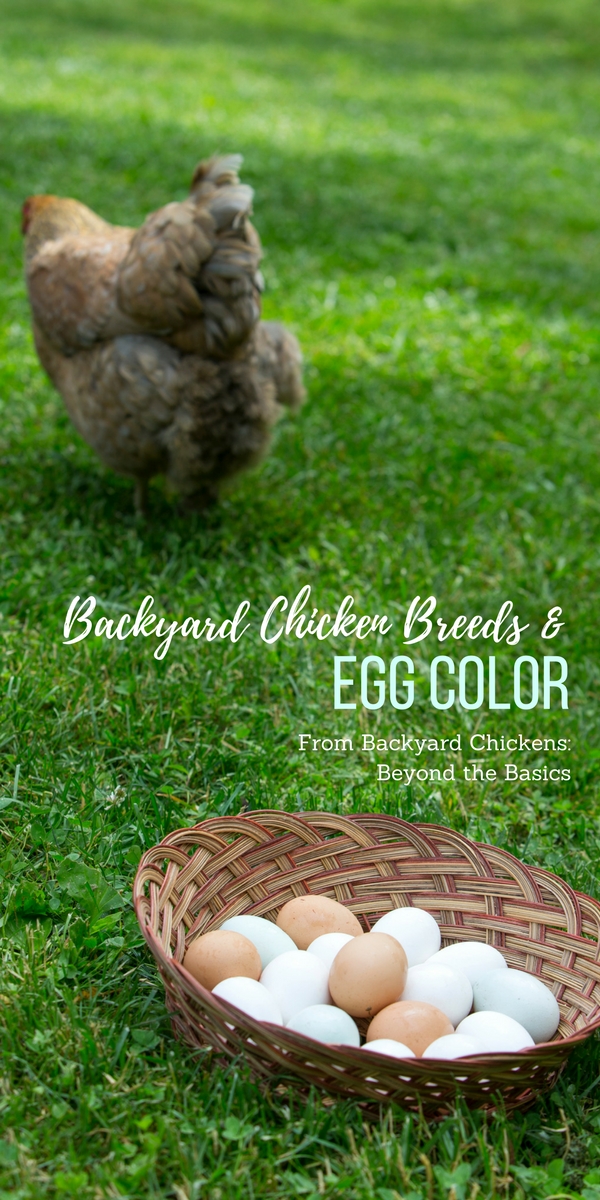
Backyard chicken expert Pam Freeman is here to share some of the wisdom included in her fabulous book Backyard Chickens: Beyond the Basics and teach us which chicken breeds lay which eggs.
Chicken Breeds and Egg Color
By Pam Freeman
Breeds and Egg Color
An egg collecting basket full of different colored eggs is achievable by picking the right breeds. There are lots of breeds to choose; many that are perfect for backyard chicken keeping and especially for families with kids. Below is a list of commonly found chicken breeds organized by egg color.
While technically not a true breed, Easter Eggers are a popular choice as green egg layers. Australorps are excellent brown egg layers. In fact, an Australorp holds the record for egg laying—364 eggs in 365 days!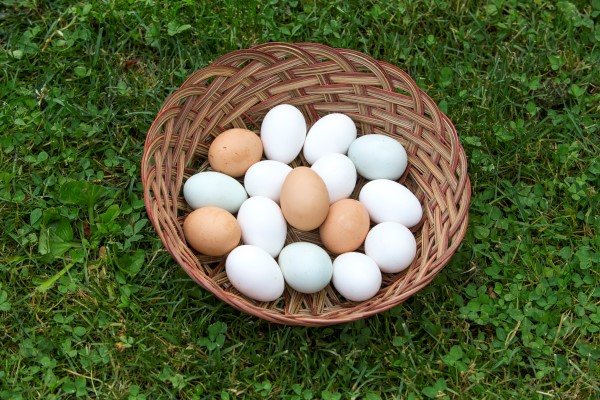
Colored Eggs
- Ameraucana (blue/green)
- Araucana (blue)
- Cream Legbar (blue)
- Easter Egger (green/blue)
- Olive Egger (dark olive to light teal)
Brown Eggs
- Australorp
- Brahma
- Cochin
- Delaware
- Dominique
- Faverolle (light brown)
- Jersey Giant
- Naked Neck Turkens
- Marans (dark brown)
- New Hampshire
- Orpington
- Penedesenca (dark brown)
- Plymouth Rock
- Rhode Island Red
- Sussex (cream/light brown)
- Wyandotte
White Eggs
- Andalusian
- Ancona
- Appenzeller Spitzhauben
- Campine
- Catalana
- Fayoumi (tinted)
- Hamburg
- Lakenvelder
- Leghorn
- Minorca
- Polish
- Sicilian Buttercup
- Sultan
- Sumatra
For more tips on your backyard chickens, check out how to keep your flock healthy and happy by adding kitchen scraps and culinary herbs to their diet.
Reprinted with permission from Backyard Chickens: Beyond the Basics by Pam Freeman © 2017. Published by Voyageur Press. Photography courtesy of Voyageur Press.
About the Author
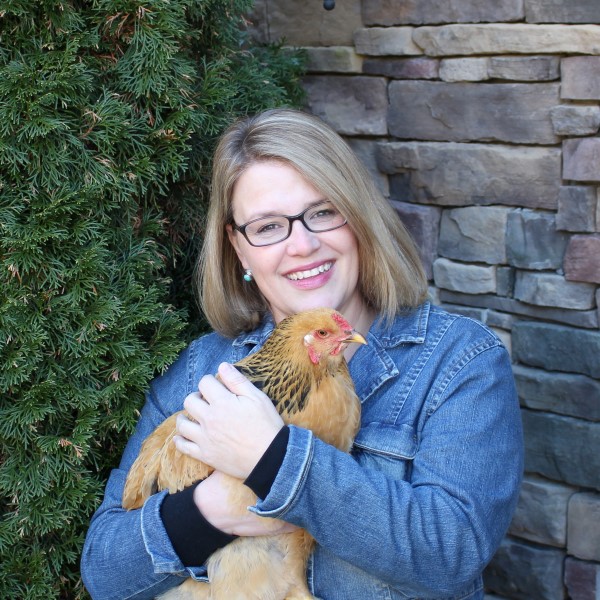
Pam Freeman is the editor for both Backyard Poultry magazine and Countryside magazine. Her first book, Backyard Chickens: Beyond the Basics, is full of lessons for expanding your flock, keeping a rooster, understanding chicken behavior, adjusting for the seasons, keeping your chickens healthy, and more.

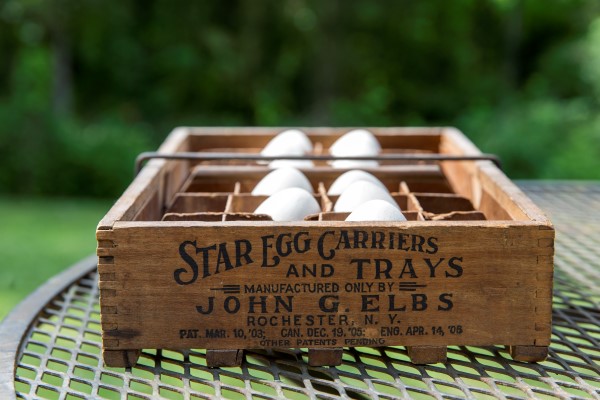
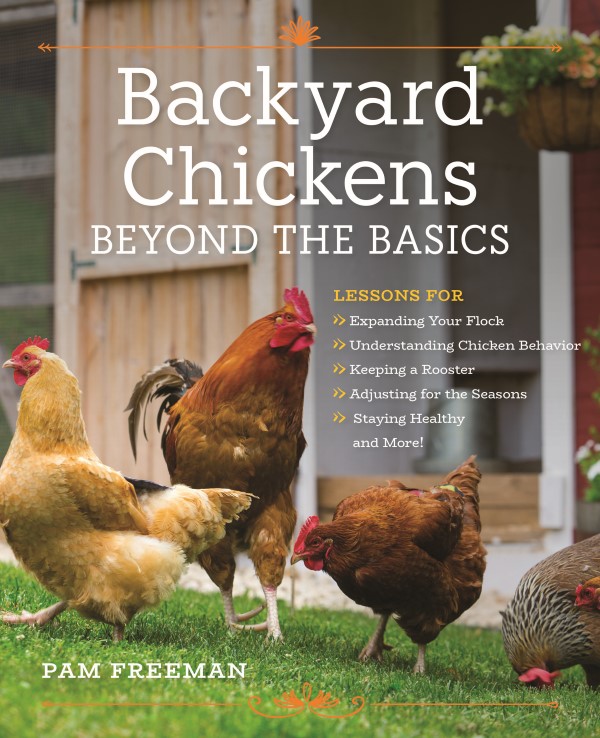



I’ve had a wish for a farm for a while. And to be a storm chaser. As such, I definitely want chickens.
Out of curiosity, if you have allergies to eggs, I’ve heard some breeds can be used as an alternative. I’ve also heard of people using duck eggs, goose eggs, or turkey eggs as well. But for chickens, which breeds would those be?